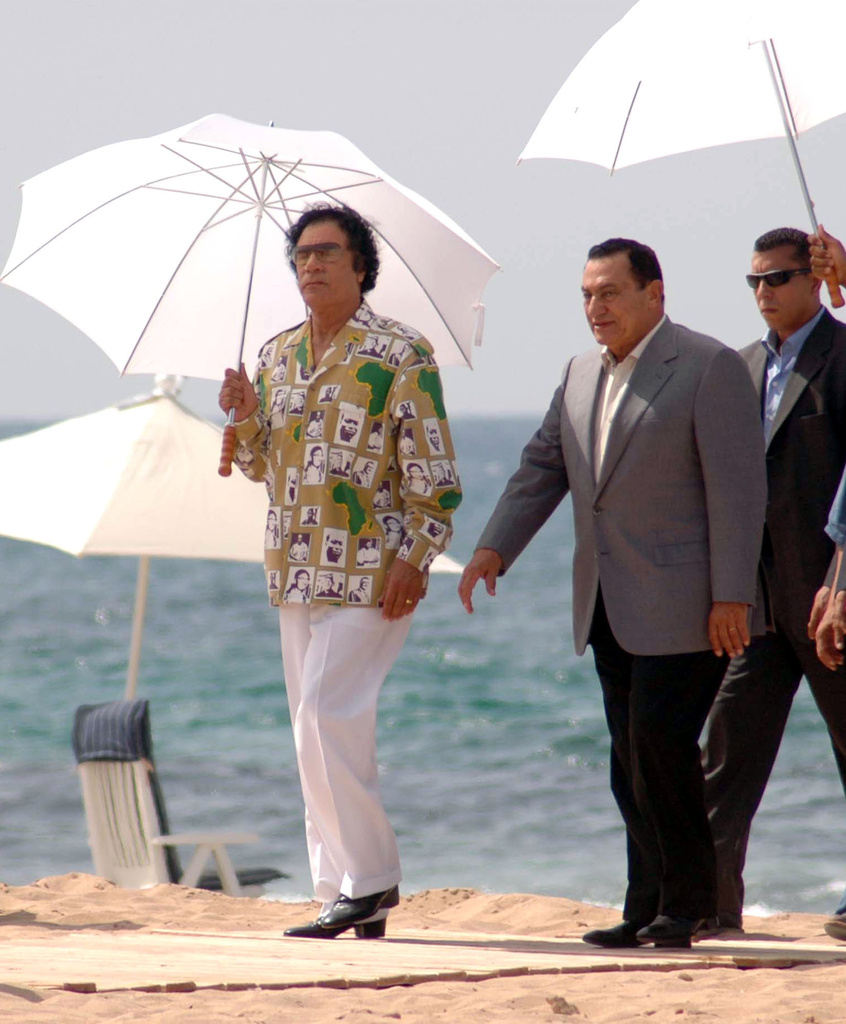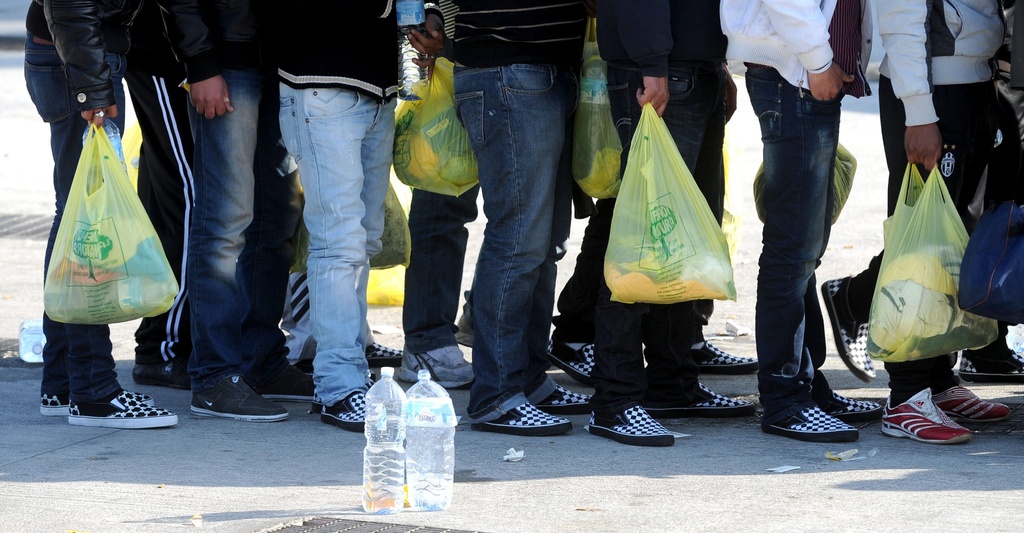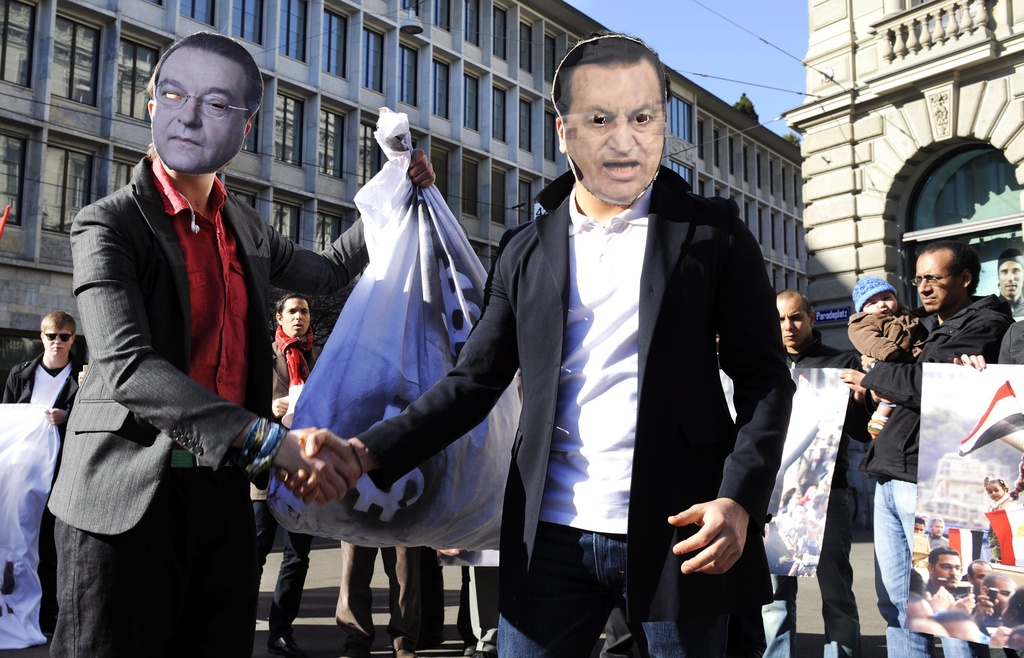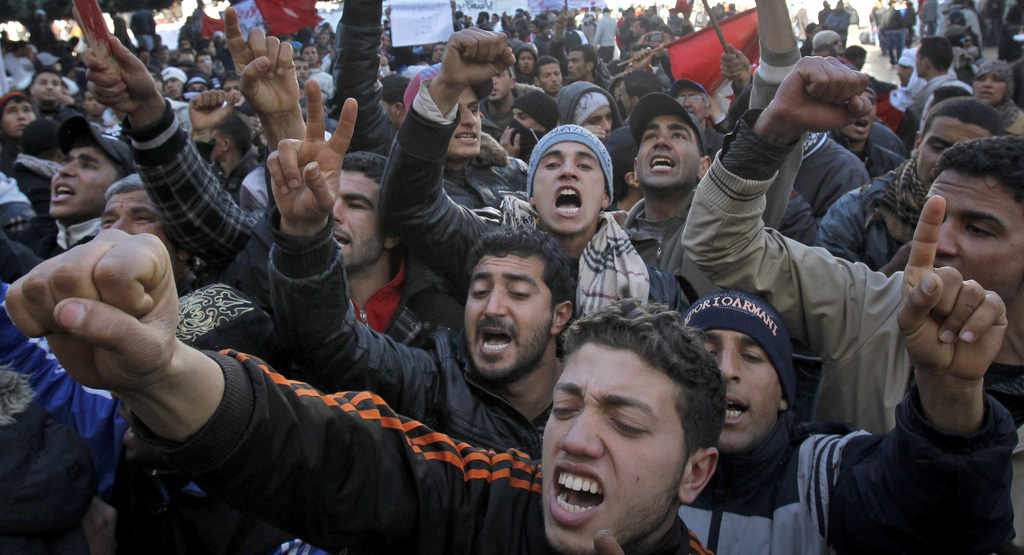Questions raised over frozen assets and migrants

Questions have been raised over the amount of frozen assets in Swiss banks linked to the ousted Tunisian and Egyptian regimes, says a top Swiss diplomat.
Swiss Secretary of State Peter Maurer told a conference in Geneva on Monday that the return of the frozen assets had been the major topic during his recent visit to both countries.
Switzerland has frozen SFr60 million ($69 million) belonging to former Tunisian dictator Zine el-Abidine Ben Ali and his clan. It has also identified about SFr400 million belonging to former Egyptian President Hosni Mubarak and his close family and some SFr360 million belonging to Libya’s Moammar Gaddafi and his entourage.
“We have been asking ourselves at the finance and foreign ministries why there is so much money,” said Maurer.
Maurer said the Swiss Financial Market Supervisory Authority (Finma) was also investigating whether Swiss banks had properly adhered to money-laundering guidelines.
“There will be political discussions once the investigations are published,” said the secretary of state.
Timing
Switzerland is currently helping the Egyptian and Tunisian transitional authorities with mutual legal assistance procedures to secure the return of the funds. But the process remains extremely complex and lengthy.
“It was the number one subject, not development aid or water or help with their new constitution or elections,” Maurer told swissinfo.ch. “The question was always, ‘When will you give us back the blocked money?’”
Swiss Foreign Minister Micheline Calmy-Rey told officials during her visit to Tunisia earlier this month that the fastest frozen assets have ever been returned by the Swiss government was four years.
The return of stolen funds is one of the three major pillars of the Swiss foreign policy response to the recent political turmoil in North Africa and the Middle East.
This, together with issues of economic cooperation and migration, was presented in Tunis in early May at a gathering of Swiss ambassadors.
Cooperation
As part of economic cooperation the foreign ministry has promised SFr12 million for measures in North Africa and the Middle East in the areas of humanitarian aid, migration, structural reform, economic development and the fight against poverty.
The Swiss Agency for Development and Cooperation (SDC) has set up an office in Tunis to implement the strategy with three people responsible for identifying projects and networking.
Maurer told the audience at the Geneva Graduate Institute that an important lesson should be drawn from the recent Arab Spring uprisings.
“The political strategy of the past decades, with a single vision aiming at stability and stigmatizing key political actors, is no longer viable,” he commented. “Differentiated and pluralist approaches are more promising. Action for the welfare of the population and their security and development are crucial and will become increasingly necessary in the future.”
The secretary of state said Switzerland was ready to offer technical assistance to help prepare elections and send election observers to oversee the voting process.
“And we are ready to answer positively to any requests for good offices for encouraging dialogue and confidence among all groups in society,” he added.
Migration issues
Maurer discussed the issue of migration with the Tunisian authorities during his recent visit, together with Swiss migration chief Alard du Bois-Reymond. The aim was to get a better overview and to determine areas of cooperation on the issue of migration. To this end, Switzerland wants to begin dialogue with Tunisia on migration.
The Tunisian visit follows recent remarks on the situation by Swiss Justice Minister Simonetta Sommaruga calling for an agreement for the return of immigrants as soon as possible, and urging Tunisia to improve its fight against gangs involved in human trafficking. She has also rejected calls for Switzerland to accept large contingents of migrants from North Africa.
According to the International Organization for Migration, some 27,000 migrants arrived in Italy and Malta from Tunisia and Libya during the first four months of the year.
This compares with 280,000 who fled Libya to Egypt and over 400,000 who fled to Tunisia and 65,000 to Niger. Meanwhile, just 251 Tunisians arrived in Switzerland between January and March.
“It’s important to keep things in proportion; the figures are very clear,” said Maurer. “It makes me wonder what Switzerland is ready to do to support the hundreds of thousands of refugees and migrants and to manage the migration flow.”
Maurer was born in 1956. He studied history, political sciences and international law in Bern and Perugia (Italy) and holds a Ph.D. in philosophy. He joined the foreign ministry in 1987.
He was a member of the Permanent Observer Mission of Switzerland at the United Nations between 1996 and 2000.
In September 2004 he was named Swiss ambassador to the UN and oversees budget and administrative matters of the Fifth UN Commission.
In March he took over as state secretary in the Swiss foreign ministry.

In compliance with the JTI standards
More: SWI swissinfo.ch certified by the Journalism Trust Initiative














You can find an overview of ongoing debates with our journalists here . Please join us!
If you want to start a conversation about a topic raised in this article or want to report factual errors, email us at english@swissinfo.ch.